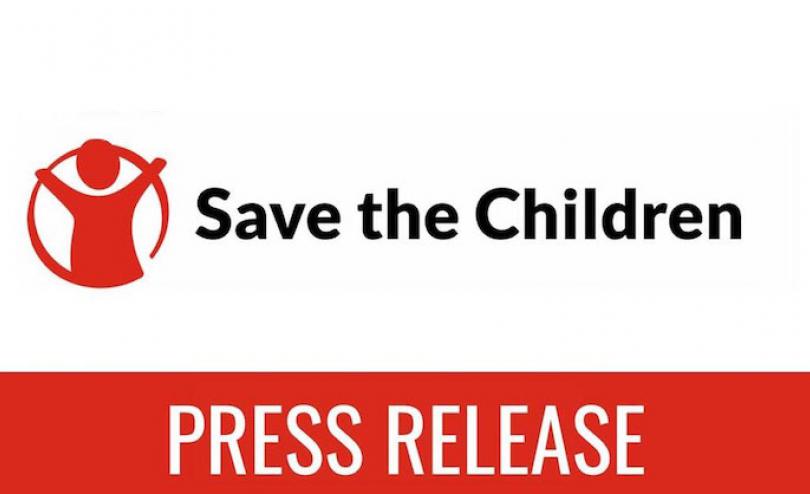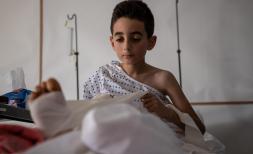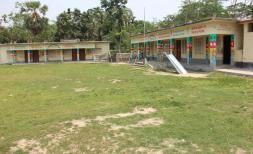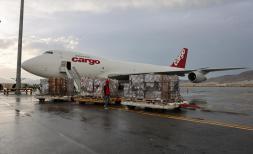Greece: Less than one third of unaccompanied children get asylum approved, leaving the rest at risk

ATHENS, 27 July 2023– Most unaccompanied children seeking safety in Greece have their asylum claims rejected, leaving them without legal papers and vulnerable to abuse and exploitation, according to a new report by Save the Children and the Greek Council for Refugees that calls for Greek authorities to review their policies.
The report, 'Without Papers, There is No Life,' revealed that in 2022 only 981 out of 3,175 asylum applications lodged by unaccompanied children were accepted. The remaining applications were either rejected or remain in a lengthy asylum process with no specific timeline for finalization.
While the rejection rate is not publicly available, these figures suggest many lone children on the move were denied the right to protection and left without the legal documentation needed to enable them to remain in the country.
The report included interviews from 12 unaccompanied children who described the challenges of obtaining legal papers in Greece and the impact this had on their wellbeing and their lives.
Mahir*, 14, from Iraq, described the reality of living without documentation:
"When I didn't have papers, and was waiting to get registered, it was like a prison. I didn't have the possibility to leave the camp, go to the market, see where we are – I spent all my time on my mobile phone."
Undocumented, unaccompanied children with failed asylum applications can apply for the right to remain in Greece on humanitarian grounds. However, a myriad of legal barriers, including unattainable requirements and lack of free age-appropriate legal aid, result in hundreds of children and youth living unofficially and insecurely in Greece.
The situation in Greece is out of line with many European Union (EU) states, where almost half of member states grant residence permits to unaccompanied girls and boys, serving their best interests as children.
"Greece must keep pace with other EU Member States. Girls and boys seeking safety should be offered official documents and protection as soon as they reach Greek shores. No child takes the decision to leave their home country lightly – many are fleeing war, hunger, persecution, and the impact of climate change. Without proper documents they risk becoming victims of exploitation and abuse.
"Denied legal documentation, children can also accumulate debts from covering their basic needs, leaving them even more exposed to abuse," said Lefteris Papagiannakis, director of the Greek Council for Refugees.
Undocumented children live a precarious existence. Many are scared to leave their accommodation in case they are targeted by the authorities, while unaccompanied children registered as adults face specific risks such as being detained, and potential return.
The situation is exacerbated by Greece's application of the 'safe third country' principle, where a child must explain to authorities why they didn't apply for asylum in the first safe country they passed through en route to Greece. Children facing return to their home country or a 'safe third country' often decide to continue their perilous journey to other EU countries. Due to a lack of papers, many will be exposed to risks including violence and exploitation by people smugglers.
Hakim*, 17, from Afghanistan, is unregistered and lives in fear of returning home:
"I have never been outside the camp. I am afraid that if I leave the camp the police might ask for my documents and will deport me back to Türkiye and then to Afghanistan. And then I will have no choice but to commit suicide."
For many children, the dangerous journey to Greece has taken its toll, with their distress compounded by lack of official papers.
Daniel Gorevan, Senior Advocacy Advisor at Save the Children, said:
"Most lone children have their asylum claims rejected, forcing them to live in insecurity and fear, at risk of exploitation and abuse. Unaccompanied children rely on Greece's legal framework to offer them protection and safety – the government must ensure all these children have a residence permit."
The Greek Council for Refugees is the oldest NGO for refugee rights in the country. It provides legal and psychosocial support to refugees, and also provides interpretation and educational support.
Save the Children works with refugee and migrant children inside and outside of Europe, aiming to support vulnerable children with the greatest needs. Globally we work in 120 countries, including many countries of origin and transit.
For more information please contact:
- Daphnee Cook, Daphnee.Cook@savethechildren.org;
For out of hours media requests please email media@savethechildren.org.uk or +44 (0) 7831 650409




